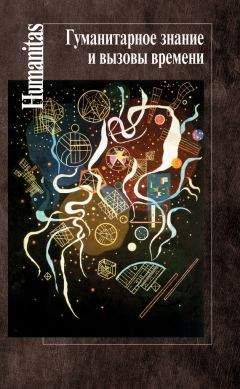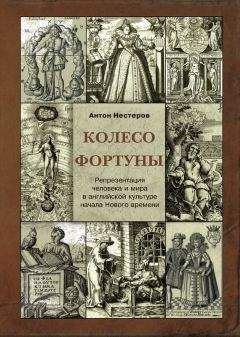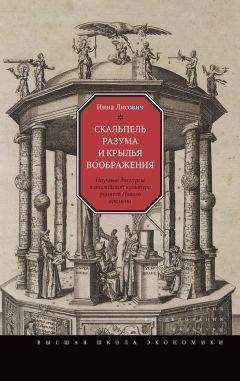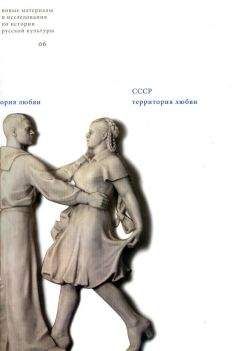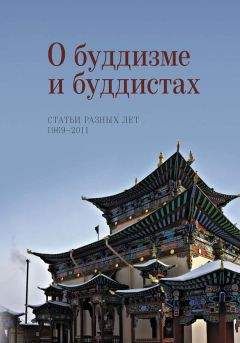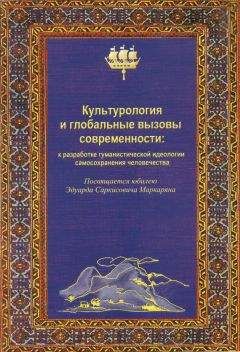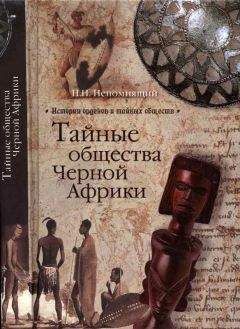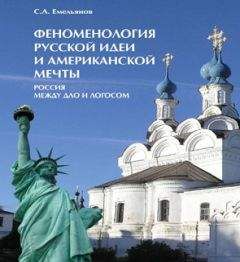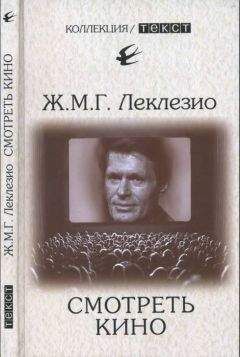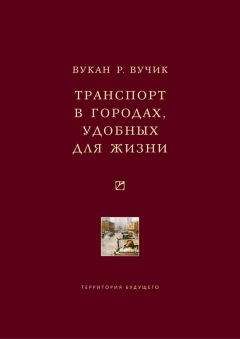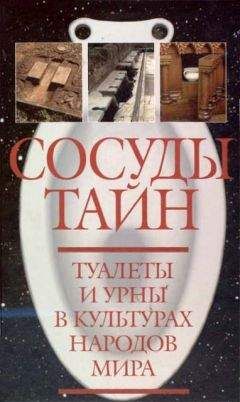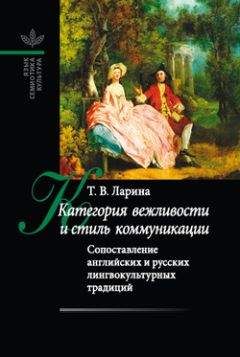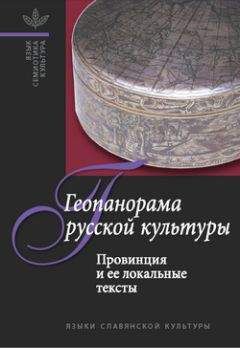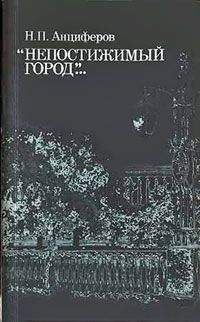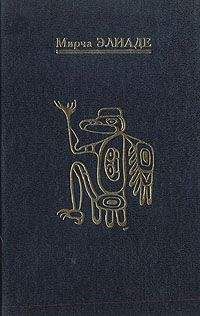Николай Ссорин-Чайков - Топография счастья
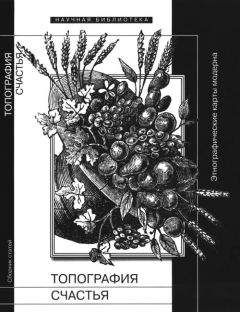
Скачивание начинается... Если скачивание не началось автоматически, пожалуйста нажмите на эту ссылку.
Жалоба
Напишите нам, и мы в срочном порядке примем меры.
Описание книги "Топография счастья"
Описание и краткое содержание "Топография счастья" читать бесплатно онлайн.
В центре внимания данного сборника — категория счастья в современной культуре, которая рассматривается в различных контекстах: от «американской мечты», представленной в образе отдельного дома и машины до мест свадебной фотосъемки в российских городах. Где и как люди ищут счастье, как это происходило в разные эпохи и в разных странах (Великобритания, Индия, Индонезия, Россия, США)? Целью сборника является своего рода эксперимент — набросать в первом приближении этнографическую карту модерна как отражение погони за счастьем, как карту социального пространства, отмеченного его образами.
Fisher Ph. (2002). The vehement passions. Princeton: Princeton University Press.
Foley M. (2010). The age of absurdity: why modern life makes it hard to be happy. London: Simon h Schuster.
Frey W. H. (1985). Crying: the mystery of tears. Minneapolis: Winston Press.
Frijda N. H. (1986). The emotions. New York: Cambridge University Press.
Gandhi M. K. (1909, 1997). Hind swaraj and other writings / Ed. A. J. Parel. Cambridge: Cambridge University Press.
Gilbert D. (2006). Stumbling on happiness. London: Harper Collins.
Goldie P. (2000). The emotions: a philosophical exploration. Oxford: Clarendon Press.
Graham C. (2009). Happiness around the world: the paradox of happy peasants and miserable millionaires. Oxford: Oxford University Press.
Grodal T. (1997). Moving pictures: a new theory of film genres, feelings and cognition. New York: Oxford University Press.
Haidt J. (2007). The happiness hypothesis: putting ancient wisdom and philosophy to the test of modem science. London: Heinemann.
Home is where the heart is: studies in melodrama and the woman’s film / Ch. Gledhill (ed.). London: BFI Books, 1987.
Inden R. B. (1999). Transnational class, erotic arcadia and commercial utopia in Hindi films // Image journeys: audio-visual media and cultural change in India / Ch. Brosius and M. Butcher (eds.). New Delhi: Sage Publications, 1999. P 41–66.
Keen S. (2007). Empathy and the novel. New York: Oxford University Press.
Kuhn A. (2002). An everyday magic: cinema and cultural memory. London: I. B. Tauris.
Layard R. (2005). Happiness: lessons from a new science. London: Penguin.
Levinson J. (1982). Music and negative emotions // Pacific Philosophical Quarterly. № 63. P. 327–346.
Lutz C. A. (1988). Unnatural emotions: everyday sentiments on a Micronesian atoll and their challenge to western theory. Chicago: University of Chicago Press.
Lutz T. (2001). Crying: A natural and cultural history of tears. New York: W. W. Norton.
Mayne J. (1993). Cinema and spectatorship. London: Routledge.
McMahon D. (2007). The pursuit of happiness: A history from the Greeks to the present. London: Penguin.
Moldoveanu M. C. and Nohria N. (2002). Master passions: emotion, narrative and the development of culture. Cambridge, Mass.: MIT Press.
Mukherjee M. (1985). Realism and reality: the novel and society in India Delhi: Oxford University Press.
Mulvey L. (1977/8). Notes on Sirk and melodrama // Movie. Winter. P. 53–56.
Nandy A. (1988). The intimate enemy: loss and recovery of self under colonialism. Delhi: Oxford University Press [1983].
Nandy A. (2000). Invitation to an antique death: the journey of Pramathesh Barua as the origin of the terribly effeminate, maudlin, self-destructive heroes of Indian cinema // Pleasure and the nation: the history, politics and consumption of public culture in India / R. Dwyer and Ch. Pinney (eds.). Delhi: Oxford University Press. P. 139–160.
Narayan B. (2001). Documenting dissent: contesting fables, contested memories and Dalit political discourse. Shimla: Institute of Advanced Study.
Neale S. (1986). Melodrama and tears// Screen. № 27 (6). P. 6–22.
Neil A. (1996). Empathy and (film) fiction // Post-theory: reconstructing film studies / D. Bordwell and N. Carroll (eds.). Wisconsin: University of Wisconsin Press. P. 175–194.
Ngai S. (2005). Ugly feelings. Cambridge, Mass.: Harvard University Press.
Oakley J. (1992). Morality and the emotions. London: Routledge.
Oatley K. (6 Johnson-Laird P. N. (1987). Towards a cognitive theory of emotions // Cognition a Emotion. № 1. P 29–50.
Oatley K. and Jenkins J. M. (1996). Understanding emotions. Oxford: Black-well Publishers.
Parrott W. (2001). Emotions in Social Psychology. Philadelphia: Psychology Press.
Pinney Ch. (1997). Camera indica: the social life of Indian photographs. London: Reaktion Books.
Prasad M. M. (1998). Ideology of the Hindi film: a historical construction. Delhi: Oxford University Press.
Rajadhyaksha A. (2000). Viewership and democracy in the cinema // Making meaning in Indian cinema / R. Vasudevan (ed.). Delhi: Oxford University Press. P. 267–296.
Robinson J. (2005). Deeper than reason: emotion and its role in literature, music and art. New York: Oxford University Press.
Schoch R. (2006). The secrets of happiness: three thousand years of searching for the good life. New York: Scribner.
Sinha M. (1995). Colonial masculinity: the «manly Englishman» and the «effeminate Bengali» in the late nineteenth century. Manchester: Manchester University Press.
Smith M. (1995). Engaging characters: fiction, emotion and the cinema Oxford: Clarendon Press.
Solomon R. C. (1993). The passions: emotions and the meaning of life. London: Hackett Publishing CO.
Solomon R. C. (2004a). In defense of sentimentality. New York: Oxford University Press.
Srinivas S. V. (1996). Devotion and defiance in fan activity // Journal of Arts and Ideas. № 29. P. 66–83.
Stacey J. (1993). Star gazing: Hollywood cinema and female spectatorship. London: Routledge.
Staiger J. (2000). Perverse spectators: the practices of film reception. New York: New York University Press.
Thinking about feeling: contemporary philosophers on emotions / R. C. Solomon (ed.). Oxford: Oxford University Press, 2004 (b).
Thomas R. (1995). Melodrama and the negotiation of morality in mainstream Hindi film // Consuming modernity: public culture in a South Asian world. C. Breckenridge (ed.). Minneapolis and London: University of Minnesota Press. P. 157–182.
Tidrick K. (2006). Gandhi: a political and spiritual life. London: I. B. Tauris.
Vasudevan R. (1989). The melodramatic mode and commercial Hindi cinema // Screen. № 30 (3). P. 29–50.
Vasudevan R. (1998). Sexuality and the film apparatus: continuity, noncontinuity, discontinuity in Bombay cinema // A question of silence? The sexual economies of modem India / M. E. John and J. Nair (eds). New Delhi: Kali for Women: 192–215.
Weiner B. a Graham S. (1984). An attributional approach to emotional development // Emotions, cognition, and behavior / C. E. Izard, J. Kagan & R. B. Zajonc (eds.) New York: Cambridge University Press. P. 167–191.
Well-being: the foundations of hedonic psychology / D. Kahneman, E. Diener and N. Schwarz (eds.). New York: Russell Sage Foundation Publications, 2003.
Williams L. (2009, orig 1998). Melodrama revised // Emotions: a cultural study reader / J. Harding and E. D. Pribram (eds.). London: Routledge. P. 336–350.
Wollheim R. (1999). On the emotions. London: Yale University Press.
______________________ ______________ Рэйчел Дуаер[464]Примечания
1
См., напр.: Graham С. Happiness Around the World; the Paradox of Happy Peasants and Miserable Millionaires. New York: Oxford University Press, 2009; Gilbert D. Stumbling on happiness. New York: Vintage Books, 2007; Lane R. The loss of happiness in market democracies. New Haven: Yale University Press, 2000; Nettle D. Happiness: the science behind your smile. Oxford: Oxford University Press, 2005; Diener E., Oishi S. Money and happiness: Income and subjective well — being across nations // Culture and subjective well — being / E. Diener & E. M. Suh (Eds.). Cambridge, MA MIT Press, 2000. P. 185–218; Haybron D. M. What do we want from a theory of happiness? // Metaphilosophy. 2003. № 34. P. 305–329; Gerson E. M. On quality of life // American Sociological Review. 1976. № 41. P. 793–806.
2
Среди «инаугурационных» статей первого выпуска этого журнала отметим: Fumham A., Cheng Н. Lay theories of happiness; Diener E., Lucas R. E. Explaining Differences in Societal Levels of Happiness: Relative Standards, Need Fulfillment, Culture, and Evaluation Theory; Lane R. Diminishing returns to income, companionship — and happiness // Journal of Happiness Studies. 2000. № 2. P. 227–246; 2000. № 1. P. 41–78 и 103–119.
3
Veenhoven R. Wbrld database of happiness, distributional findings in nations, Erasmus University Rotterdam (2010) // http://www.worlddatabaseofhappiness.eur.nl/hap_nat/nat_fp.php; Diener E., Diener M. Cross-cultural correlates of life satisfaction and self-esteem // Social Indicators Research Series. 2009/ № 38. P. 71–91.
4
http://www2.le.ac.uk/ebulletin/news/press-releases/2000–2009/2006/07/nparticle.2006–07–28.2448323827; White A. G. A Global Projection of Subjective Well-being: A Challenge To Positive Psychology? // Psychtalk. 2007. № 56. P. 17–20.
5
Матвеева И., Михайлова H., Михайлова Н. Качество жизни — новая цивилизационная парадигма // Стандарты и качество. 2000 № 5. С. 56–61; Нугаев P. M., Нугаев М. А. Теории качества жизни в современной западной социологии // Социологические исследования. 2003. № 6. С. 100–105; Бойцов Б. В., Крянев Ю. В., Кузнецов М. А. Системная целостность качества жизни // Стандарты и качество. 1999. № 5. С. 19–23; Лига М. Б. Качество жизни. Индикаторы качества жизни (социальные). Современная энциклопедия социальной работы / Под ред. академика РАН В. И. Жукова. 2-е изд., доп. и перераб. РГСУ, 200К. Аргайл М. Психология счастья. М.: Прогресс, 1990.
6
Petrified utopia. Happiness Soviet style / M. Balina, E. Dobrenko (eds). London: Anthem Press, 2009.
7
Гельвеций. Счастье. Поэма / Пер. и вступ. ст. М. А. Дынника. М.: Художественная литература, 1936.
8
Город с именем Счастье один // Счастьенский вариант: Альманах. Луганск: Глобус, 2007. С. 4–5; Было ли Счастье Ковалинкой? Род Ковалинских в документах Харькова и Ростова // Счастьенский вариант III: Альманах. Луганск. 2009. С. 6–9.
9
Прошлое веков стучится в сердце к нам. Где живет счастье? // Счастьенский вариант III: Альманах. Луганск. 2009. С. 5.
10
Foucault М. Of Other Spaces // Diacritics. № 16. Spring 1986. P. 22–27.
11
Только главы М. Золотухиной и М. Сапожниковой были добавлены позже. О выставке см.: Соснина О. А. Топография счастья: Русская свадьба. Конец XIX — начало XXI в. М., 2009. Бюро Прогресс-88. Выставка прошла в ГМЗ «Царицыно» с 24 июля по 27 октября 2009 г., куратор и автор концепции проекта О. А. Соснина.
12
Габдрахманов П. Ш. Имя и счастье в средневековой Фландрии // Казус. Индивидуальное и уникальное в истории. Вып. 4 / Под ред. Ю. Л. Бессмертного и М. А. Бойцова. М.: ОГИ, 2002. С. XX.
13
Свенцицкая И. С. Счастье и горе у древних греков // Казус. 2002. С. 16.
14
Frey В. S., Stutzer A. Happiness Prospers in Democracy // Journal of Happiness Studies. 2000. № 1. P. 79–102; Veenhoven R. Apparent quality — of — life in nations: How long and happy people live // Social Indicators Research. 2005. № 71. P. 61–86.
15
Кошелева О. Е. Ракурсы «щастья» в России XVII–XVIII веков // Казус. 2002. С. 108–117.
16
Марков А. В. Повесть о Горе-Злосчастии // Живая старина. 1913. С. 17–24.
17
Подписывайтесь на наши страницы в социальных сетях.
Будьте в курсе последних книжных новинок, комментируйте, обсуждайте. Мы ждём Вас!
Похожие книги на "Топография счастья"
Книги похожие на "Топография счастья" читать онлайн или скачать бесплатно полные версии.
Мы рекомендуем Вам зарегистрироваться либо войти на сайт под своим именем.
Отзывы о "Николай Ссорин-Чайков - Топография счастья"
Отзывы читателей о книге "Топография счастья", комментарии и мнения людей о произведении.





